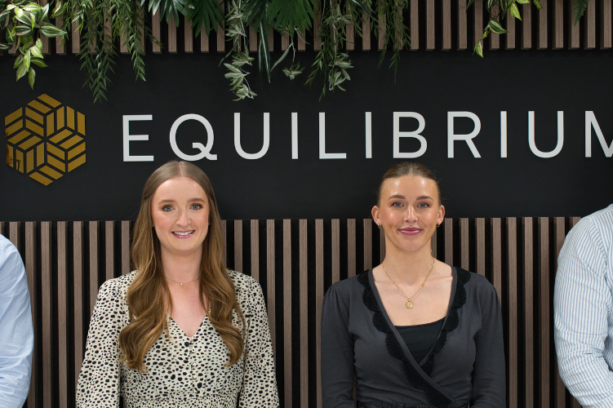FAQ’s from our latest live stream

At our recent COVID-19 livestream Equilibrium founder Colin Lawson gave an update on the impact of the coronavirus on investing and global markets. Below is a summary of some of the questions that we were unable to respond to on the day.
If we are entering a prolonged period of lower economic activity and potentially a recession, what impact would that have on a recovery in stock markets?
The length of the shutdown is the great unknown here and so it’s hard to accurately judge the potential economic impact. The longer we’re locked down, the longer we aren’t spending or interacting, then the deeper the economic impact will be.
It’s worth remembering the difference between the stock market and the economy. Although they are linked, the stock market is always trying to look beyond where we are now. It’s forward looking.
The recent falls we’ve seen in markets over the past few weeks have occurred before we’ve actually seen a recession as the data that confirms this is backward looking and hasn’t been compiled yet. But in essence, the market has already reacted in anticipation of a recession and as such it has already factored that in to its current price.
In the same way, the opposite is true. Being forward looking, a recovery in markets will likely occur before we come out of recession. So whilst the two are linked, they don’t always move in the same direction or at the same time.
How likely is it we will see bank bail outs or even bank failures?
Of course you can never say never, but things have moved on a long way in the years since the financial crisis. The capital adequacy rules introduced have meant, in coming into the present crisis, banks were very well capitalised. In other words, they were required to hold a high proportion of their balance sheet in cash or highly liquid assets.
Similar to an individual’s cash reserve, this is there to allow banks to weather periods of economic difficulty. In fact, one of the steps taken by central banks in the past few weeks was to lower this requirement. Governments and central banks want to encourage banks to use this emergency reserve to provide loans and support businesses through the challenging times ahead.
It is not to say that some banks won’t come under pressure, however, the banking system is in far better shape than it was at the dawn of the financial crisis and at this point we don’t have any explicit concerns on the sustainability of banks.
In the wake of the Woodford scandal last year, how are the Equilibrium funds positioned in terms of liquidity and will I still be able to access my money?
We continue to hold higher cash levels than usual across our three funds. Early on we took the decision to sell down our holdings in various asset classes that traditionally make up the “low risk” side of the portfolio. This included short dated fixed interest, corporate and high yield bonds, and commercial property. So we’ve entered into the current crisis with high levels of cash within the funds ranging from 20%+ in Cautious to 10%+ in Adventurous.
What is more, in addition to the cash held by Equilibrium within the funds, we have also been contacting the underlying fund managers who are also taking liquidity very seriously and have been increasing their own cash levels.
Following the Woodford scandal, liquidity is a hot topic and IFSL, the authorised corporate director for the Equilibrium funds, has been liaising with our investment team and monitoring the liquidity levels as part of their ongoing oversight role.
On a broader level, all investors in the Equilibrium funds are introduced by Equilibrium Financial Planning and form part of a longer term strategy. Whilst market volatility doesn’t stop “alarm bells” being set off in a few heads, our clients are well prepared to keep a level head and a long term view. As a result, we’ve seen remarkably few clients (
By investing in collective funds, are you able to target companies which will do well out of the crisis? How do you assess the funds which are most likely to benefit from a recovery?
The Equilibrium investment philosophy always begins by looking at the asset allocation i.e. equities vs fixed interest, property vs cash etc. We’ve seen, both academically and anecdotally, that 90% of the returns clients achieve come from asset allocation so this is where our initial focus begins.
We will then dig deeper into each asset class to look at regional and sector allocation before going further to highlight any particular themes that we want to capture. These themes can vary dramatically, but in particular some which we are looking at include;
- Working from home: we’ve seen first hand how compatability with technology can allow more people to work from home or remotely.
- Health & hygiene: they say it takes 21 days to create a habit. We’ve been encouraged to wash our hands by the NHS for over a month now. How easy will this habit be to break.
Once we’ve identified these themes, it’s important that we liaise and discuss with the relevant fund managers. They will be best placed to find the individual companies and our priority is find those managers with the flexibility of thought and flexibility of positioning to best capture those themes and opportunities.
Where do you go from here with the investments in the portfolio?
Since making the sales on the “low risk” side of the portfolio mentioned above, we have seen a number of the investments we sold have fallen substantially – some of which 10% or more.
So in the short term, we’re looking for the right time to buy back some of those investments that we continue to believe are fundamentally a good investment but also those we can buy back at a lower price than when we sold them. We’ll being undertaking this tentatively and over time, however, to ensure that we keep that liquidity in the portfolio as mentioned earlier.
As we search for longer term growth, we are looking for two broad categories; Quality and Trash.
Quality stocks are companies whose earnings will be resilient throughout the coming recession and the challenges it poses. The obvious example would be supermarkets who are doing a roaring trade currently but also various tech stocks who are benefitting from the lifestyle changes we’re all having to make at this time. Whilst these may not go gangbusters when we see a recovery, based on experience from previous bear markets, they do provide an opportunity to buy stocks at a lower level today but which are able to weather the storm over the coming months and potentially do quite well during that time.
The companies and stocks that do then do well during a recovery tend to be lower quality companies. This is the second category and they call it the “Dash for Trash” and, when the economy and markets starts to recover, the stocks that have been hurt the hardest, recover the fastest. We’re not necessarily there yet but we have been researching and compiling a list of various funds which we will look to invest in as and when the opportunity arises.
Watch for free today
If you’d like to watch the recording of our latest live stream, around the impact of the coronavirus on investing and global market please click below.

The information in this blog represents Equilibrium’s collective views and in no way constitutes a solicitation of investment advice. Past performance is not a guide to future returns. The value of your investments can fall as well as rise and are not guaranteed. Investors may not get back the amount originally invested.

